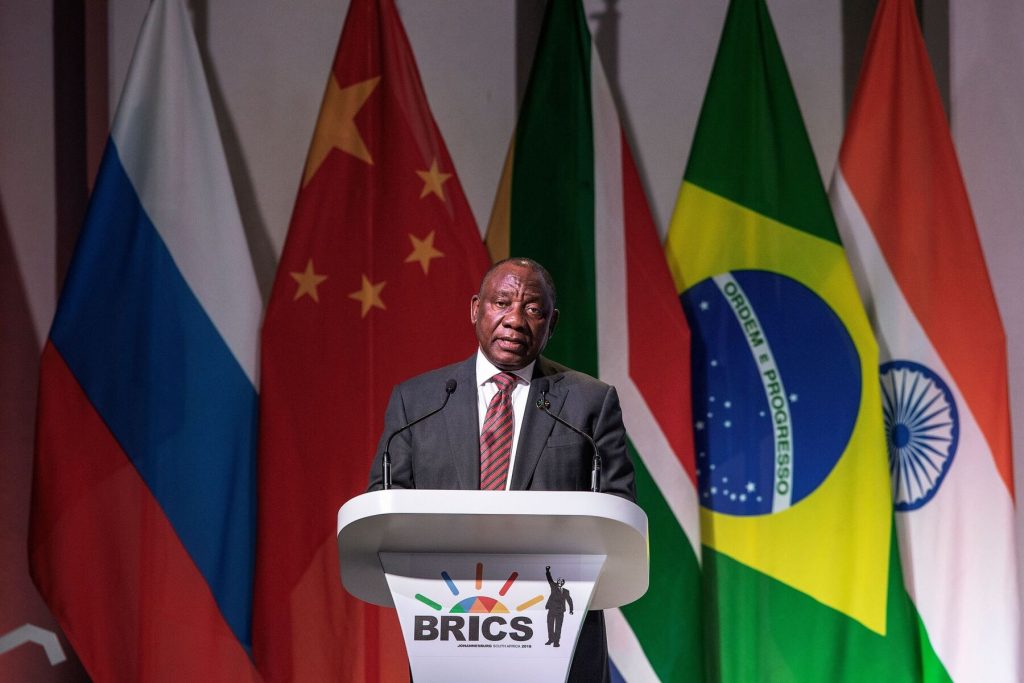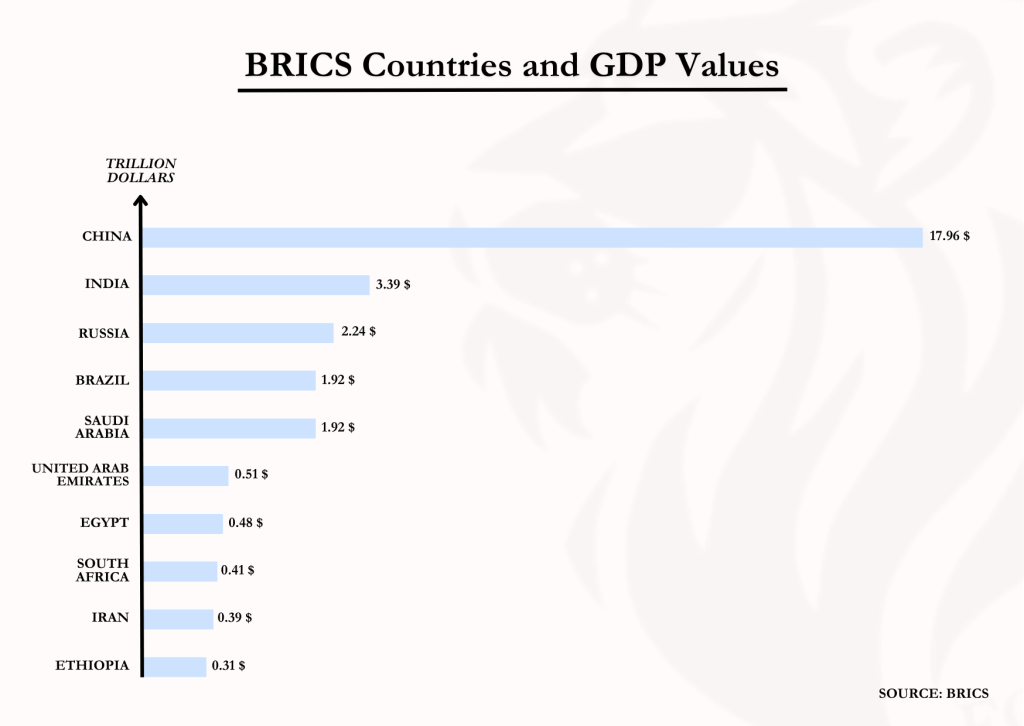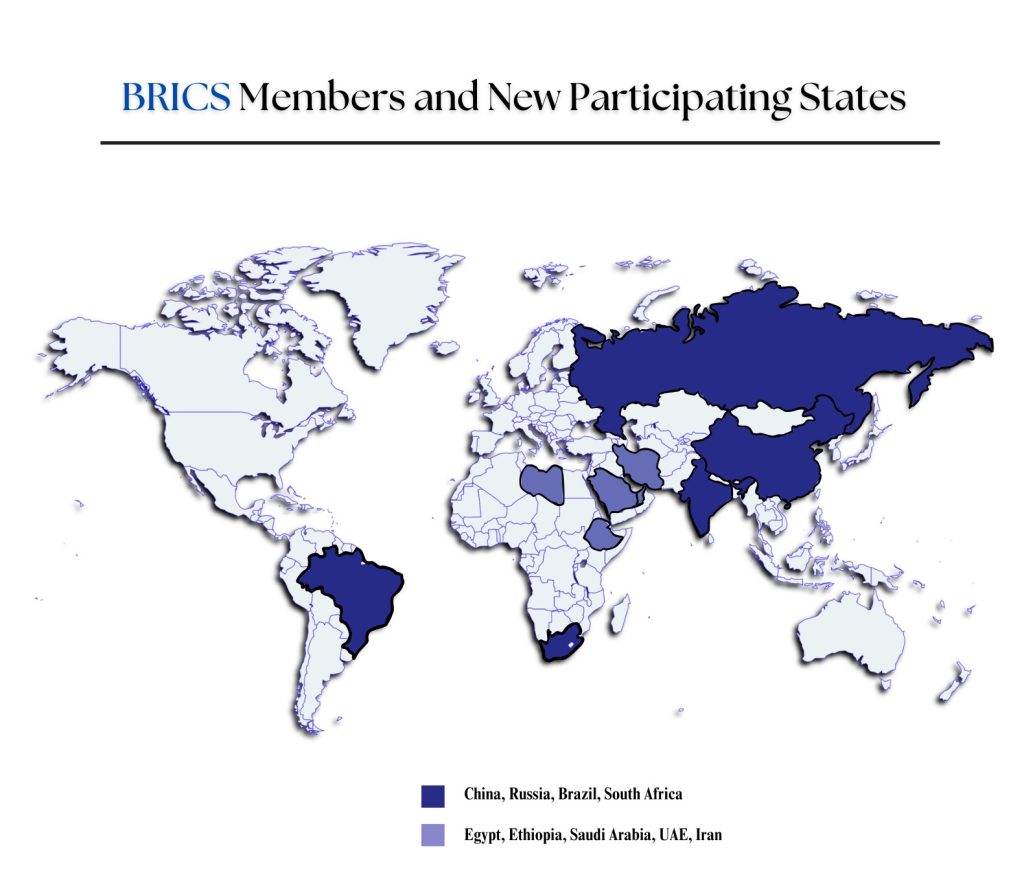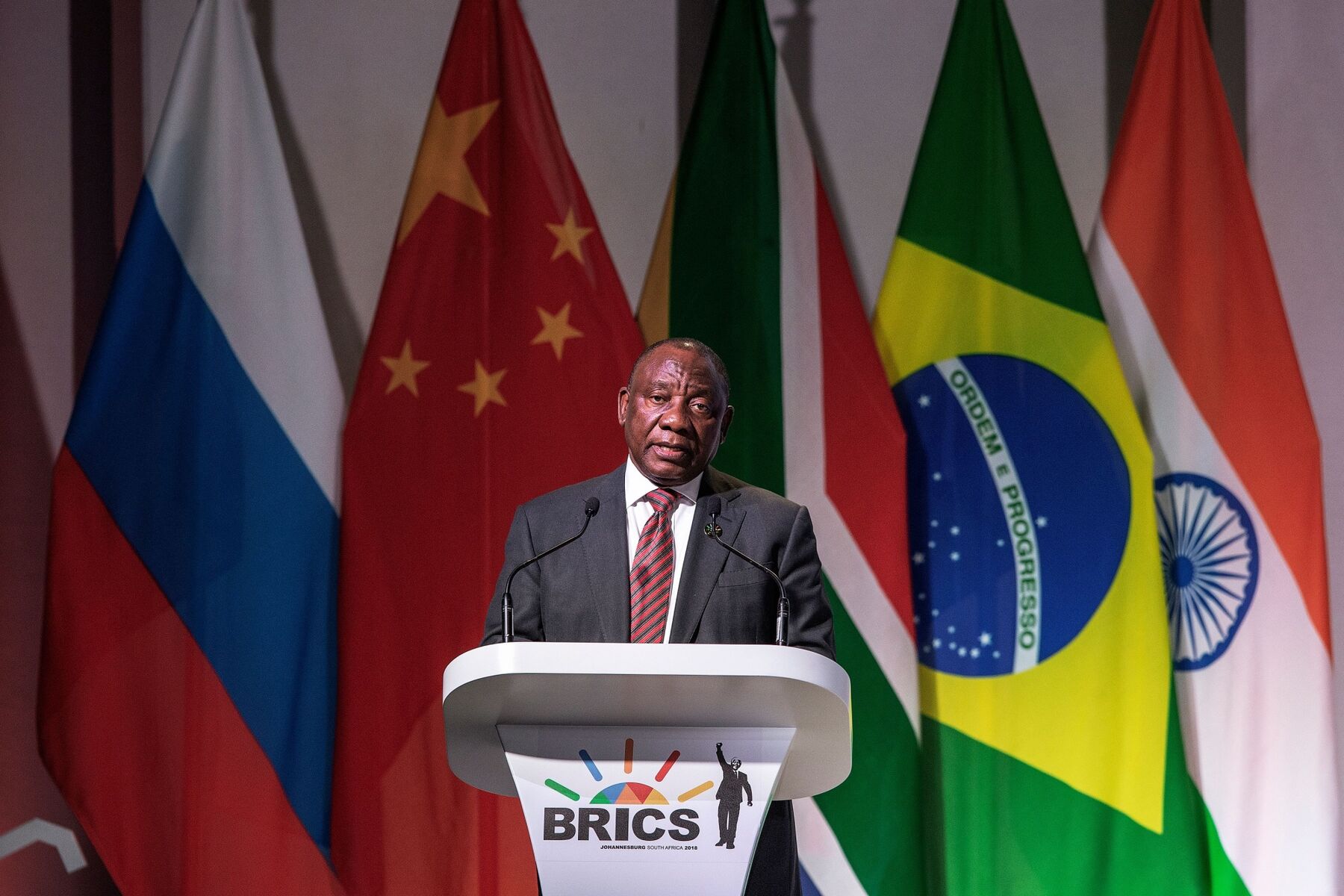








The expansion of BRICS and the inclusion of Africa indicate significant changes in global economic balances. Challenging the dominance of the West, BRICS emphasizes the goal of creating alternative economic structures, especially in Africa.


Welcome back to Africa Brief, where we take a look at the latest development policies of BRICS, which is trying to be an alternative to the world. This expansion marks a significant shift in the balance of power, especially in regions traditionally dominated by Western influence. As the BRICS consolidates its position on the world stage, its focus on economic cooperation, currency diversification and soft diplomacy could potentially reshape the global economic order.
Today, many states want to gaintheir economic independence and prove their presence in the world community. For example, American and European-based institutions such as the World Central Bank and the IMF have effective power in today’s world. States such as Russia and China, which do not accept an order in which only the West dominates and in which the West is strong, especially in economic terms, are looking for alternative solutions. Therefore, BRICS, which emerged in 2009 as a new organization under the leadership of Russia and China, aims to have a global and especially economic impact.
The fact that Russia and China, which are the founding partners of the bloc and are powerful states in the global sense, are states with significant power in their regions makes it easier for the summit to progress and to realize its goals on a more realistic plane. The BRICS summits, which are regularly attended by state leaders every year, have an important place in the world’s public opinion.
The summit, which has taken important steps especially in the economy, continues its formation within the framework of the policies of the New Development Bank it has established. The existence of a bank belonging to the bloc will allow the policies produced to act on a more realistic basis. At this point, as important decisions within the block; first and foremost, local currencies will be used against the US dollar. For this reason, the decision to expand the bloc was taken in August 2023. The most striking point was that two new member states, especially from Africa, will be included in the summit. In this way, it is inevitable that BRICS needs to play an active role in large geographies by carrying out an expansion policy.
Such an expansion policy of BRICS can of course be assumed to be a stance aimed at breaking America’s effective power in Africa. However, not only an economic breakdown is in question, but also the weakening of the rising American and Western influence in the region in every field is a possible reality. In the case of Africa, breaking the influence of the dollar and activating their own currencies instead of the dollar will increase the competition against the dollar and will provide a possible gain. Thus, especially in the African continent, the influence of the US, which is engaged in both soft diplomacy and hard diplomacy, will decrease.
With the decision taken on January 1, 2024, Ethiopia, Iran, Saudi Arabia and the United Arab Emirates, including Egypt, joined the union. At this point, first of all, the purpose for which Egypt, which is an important state in North Africa, and Ethiopia, which is dominated by conflict in its region, entered the union is being discussed. On the one hand, Egypt, which maintains regional economic power and shapes its geography at the same time, and Ethiopia, which acts in economic and political instability, on the other, are discussed.

So why did the bloc want to include a state that has been exiled to such chaos? This is the whole question. Of course, it could be the desire of Russia and China, an important Asian country in terms of the region, to have an active presence in the African continent rather than the western powers. Especially after the 2000s, China has been producing policies in Africa within the framework of the win-win policy. When we look at the studies it has carried out, it is seen that it is trying to create an Africa that is implicitly dependent on itself, even if it is not an open exploitation.
Perhaps this is why China’s image in Africa can be improved thanks to the states joining the bloc. As a matter of fact, when we look at Russia, the fact that it gained a place in Africa with military diplomacy as opposed to soft diplomacy is a situation that damages its image. As such, Russia and China, the founding and two important powers of the BRICS summit, will be seen in the world public opinion as two states that support development, especially in the economic sense. The BRICS bloc, which wants to create an alternative order in the economic sense, can achieve potential success by including the states in the African continent. In this way, it could also break America’s economic power both regionally and globally.
As a result, the BRICS summit, which has been active since 2011, is increasing its power day by day with the policies it takes within itself. In the globalizing world, new blocks, new policies or new disciplines are emerging. Of course, it is the ultimate goal of states to play an active role at this point. The fact that a state directs the economy of another state puts it in a strong position in every field. In this way, the importance of the BRICS bloc is once again understood.
At this point, this fact lies behind why Egypt and Ethiopia were included in the bloc. Every state that wants to be powerful wants to maintain its power in Africa either through soft diplomacy or by producing alternative diplomacies. This being the case, Russia and China have higher economic prosperity compared to other states and thus appear more actively in the public eye. BRICS, through its summits, expresses at every opportunity that it aims to act in cooperation and work based on mutual success.
In today’s world, there is no clear case where the bloc has been successful. However, its continuous expansion and its policy of hosting states from all geographies is an undeniable fact that it harbors potential power. Although it is premature to say whether it will be successful or not, the inclusion of Egypt, an important North African country, will allow it to dominate the Middle East geography and be effective in Africa.
Ultimately, if an agreement is reached between the member states of the bloc to use a common currency, it will rise as an economically powerful bloc. In addition, the coming together of states from different geographies brings with it significant population power. Thus, it is known that the total economy of the states that come together constitutes approximately 28 percent of the global economy. This figure reveals important data on a global scale. On the other hand, a state like Egypt, which has a high population and at the same time holds significant economic power in its geography, will make a significant contribution to the bloc.

From the Ethiopian point of view, despite its high population, it is known as a state with many ethnic conflicts, as well as an economically dependent and poor country. Yet, as an important country in the Horn of Africa, Ethiopia’s problems are still high on the agenda. As such, BRICS’ inclusion of Ethiopia may have been motivated by a desire to be associated with peaceful and solvable issues.
Ultimately, BRICS, which has potential power behind the scenes, is likely to become a strong position in the field of soft diplomacy as well as an economic power. Finally, with the addition of Saudi Arabia, the UAE and Iran to the BRICS, in addition to the African countries that have joined, it is predicted to rise in the energy sector as well as economic expansion. These states, which have significant markets in the energy sector, can take the current BRICS policies even further.
Written By: GABRIEL RAMIREZ
Written By: DILARA SAHIN
Written By: DILRUBA YILMAZ
Written By: NILAY CELIK
Written By: ELDANIZ GUSSEINOV
Written By: JOSEF SCHOEFL
Written By: SELCAN BEDIRHANOGLU
Written By: FATIH CEYLAN
FA’s flagship evening newsletter guilding you through the most important world streis ofthe day. Delivered weekdays.
